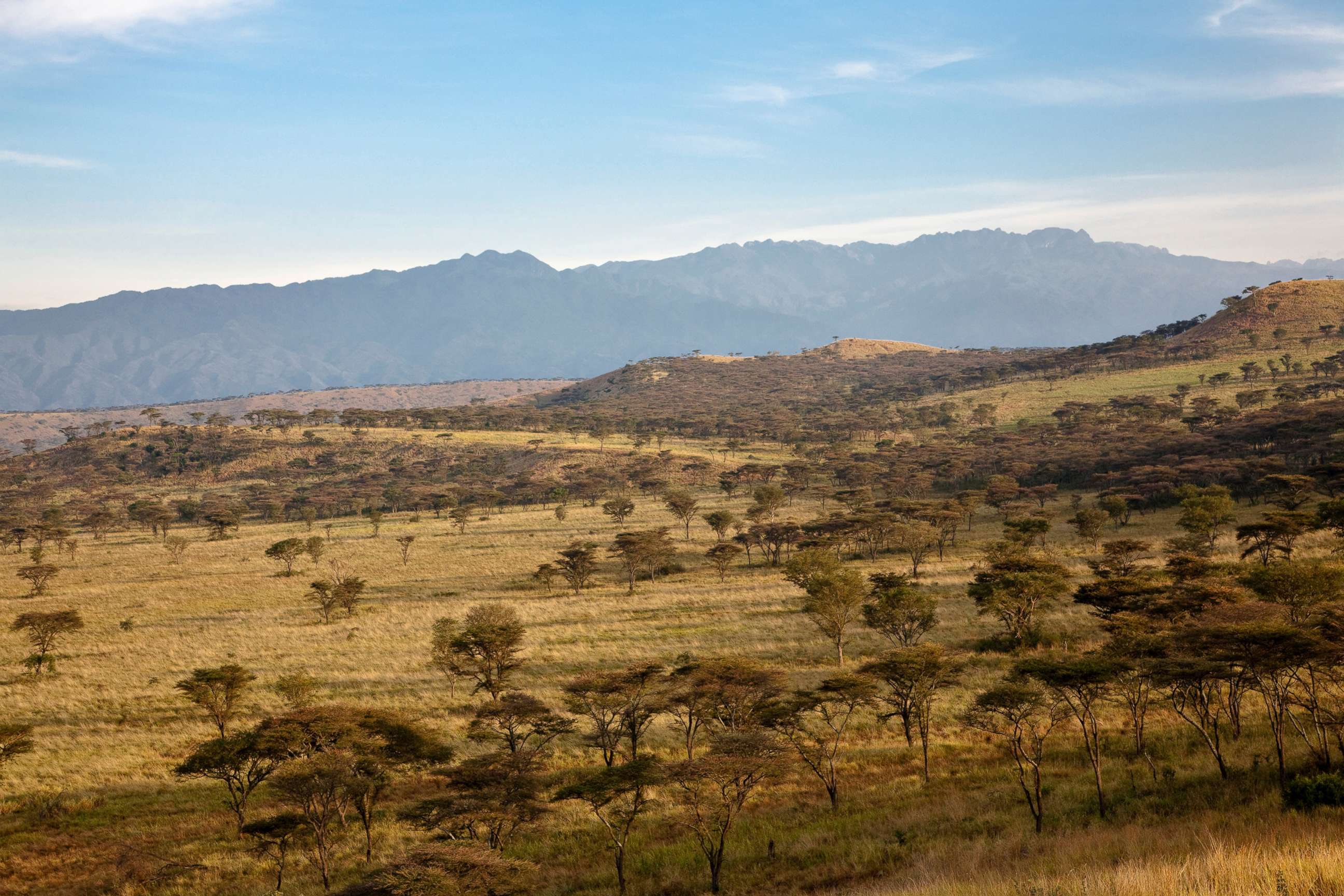Search expands for American tourist kidnapped in Uganda's Queen Elizabeth National Park
Kimberly Sue Endicott, 35, and her safari guide were abducted by gunmen.
Ugandan authorities on Thursday expanded their desperate search for American tourist Kimberly Sue Endicott and her safari guide who were allegedly abducted at the country's most popular national park by gunmen demanding ransom.
A public information officer for the Uganda Police Force told ABC News that police have "widened the search area" beyond the Queen Elizabeth National Park and into the southwest districts of Kanungu and Rukungiri, which together have a total population of more than half a million people. Police now believe the armed kidnappers are no longer inside the park but still in the country, the officer said.
"That's why we've moved further out of the park into the other areas outside the park and into the two neighboring districts," the officer told ABC News.
Authorities have tried to block key crossing points into other nearby districts as well as the country's western border, which it shares with the Democratic Republic of the Congo. They are hopeful the kidnappers are trapped within the expanded search area, the officer said.
Endicott, 35, was on an evening game drive with an elderly Canadian couple and their guide in the park's southern Ishasha section on Tuesday when they were allegedly ambushed by four unidentified gunmen dressed in military uniforms at dusk. The gunmen apparently held the group at gunpoint before snatching the keys to their safari vehicle and fleeing with Endicott as well as the guide, identified as Congolese national Jean-Paul Mirenge Remezo, according to police.
The Canadian tourists, identified by the safari company as Martin and Barbel Jurrius, were left behind and contacted the camp manager who brought them back to the wilderness compound to safety, according to police.
The kidnappers used one of the victim's mobile phones to demand $500,000 as ransom, which police said they believe is the motive behind the abduction.
A joint operation by police, armed forces and wildlife authorities to locate and rescue them has been underway since.

The U.S. Embassy in Kampala issued a security alert Thursday, advising Americans to avoid the Ishasha area of the park while local authorities search for the kidnappers.
Located in southwest Uganda, Queen Elizabeth National Park is one of the country's most popular tourist destinations and boasts luxury wilderness camps. Tourists visiting the park are sometimes accompanied by armed rangers to protect against wildlife or poachers.
The kidnapped tour guide works for Wild Frontiers Uganda, which has been operating safaris in the East African nation since 1996, according to a company spokesperson, who confirmed to ABC News that Endicott was one of three guests on Tuesday's excursion. The group was not accompanied by an armed ranger in the park at the time and there is no requirement to do so, the spokesperson said.
Uganda Wildlife Authority spokesperson Bashir Hangi said his country and its national parks are known for being safe for tourists and kidnappings are uncommon.
"This is a one-off incident, it’s an isolated incident. It is not something that happens regularly. It is not something that we are known for," Hangi told ABC News in an interview Thursday in Kampala. "We call it an accident. It’s very unfortunate, it is regrettable, but it happened."
"Our parks are very safe right now, tourists are in the parks as I speak," he added. "We are known to be a safe country for all visitors. We are known to be a country that receives visitors. We are known to be a country with people who are warmly welcoming those they don’t know. That’s what we are known for and that’s who we are, and that’s who we are going to remain to be despite this incident."
Just across the border from Uganda's Queen Elizabeth National Park is the eastern part of the Democratic Republic of the Congo, which is awash with conflict and violence as well as an ongoing Ebola epidemic. Militia activity within the borderlands between the two countries has surged in the past year. Dozens of armed groups are said to be operating in the Democratic Republic of the Congo's eastern province of North Kivu, and clashes have at times spilled over the border into Uganda, along with thousands of refugees.
Hangi said it's possible the kidnappers are actually poachers who encountered the tour group by mistake or that they are "rogue militias" from the eastern Democratic Republic of the Congo.
"So all these theories come into play," he told ABC News. "We have yet to zero in on one."
A U.S. official in Washington familiar with details of the recovery efforts in Uganda told ABC News that it appears the motive behind the abduction is purely monetary and Ugandan police are handling the situation well, with U.S. authorities only providing support as needed.
U.S. Secretary of State Mike Pompeo, after meeting with the Democratic Republic of the Congo's newly-elected president in Washington, ignored a question from reporters on Wednesday about the kidnapping.
A spokesperson for the U.S. Department of State told ABC News, "We are aware of reports of a U.S. citizen kidnapped in Uganda. Security forces are responding to the incident. We take seriously any threats against U.S. citizens abroad. The safety and protection of U.S. citizens overseas are among our top priorities. We have no further information to offer at this time."
ABC News' Robert Agenonga, Moses Bwayo, Ben Gittleson, Luis Martinez, James Meek, Nicky de Blois, Cindy Smith and Sohel Uddin contributed to this report.




